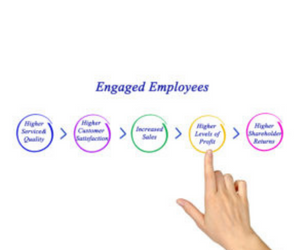Fisheries Need a Timeout – Unfortunately
The fishing industry is a paradox.
Worldwide, the industry faces a crisis. Dozens of fisheries are no longer commercially viable because we’re harvesting fish faster than they’re being replaced. According to fisheries expert Andrew Rosenberg, our fisheries could provide a 50% better yield than they do right now. That extra yield could mean billions of dollars, thousands of jobs, and countless recreational opportunities.
How could fisheries that are already overfished provide a still greater harvest?
A Comparison: Fisheries to a Savings Bank
Rosenberg can explain it; He’s a Regional Director for the National Marine Fisheries Service. Rosenberg likes to compare our fisheries to a savings bank. “Let’s suppose,” he begins, “that you have a bank account with $10,000 in it, and it’s earning 5% interest. If you take 8% each year, then every year the principal is going to go down. Pretty soon, you’re removing 8% of a very small number.”
That, according to Rosenberg, is what we’re doing with commercially desirable fish, except what we’re doing is worse. We’re harvesting an ever larger percentage of an ever smaller number of fish. The result is fisheries that are crashing.
Working on Solving the Problem
If instead, to continue the savings bank analogy, we were taking out only 3% from the savings account when it was yielding 5%, we would soon be removing 3% of a larger and larger number. In the case of fishing, if we removed fewer fish than nature replaces, we could, over time, expect the size of the catch to go up as the stocks of fish grew larger.
Rosenberg predicts that if we gave the fisheries a chance, we could see a significant improvement in the number of fish in just three to five years. Eventually, when the fisheries recovered fully, we could be harvesting 50% more fish than we do now. Even better, once the stocks rebounded, we would be able to achieve this harvest on a sustainable basis.
Unfortunately, it can harm fishermen
“To get to this point,” says Rosenberg, “we unfortunately will have to reduce the amount of fishing. You don’t want to harm fishermen, but there’s no other way to rebuild stocks.”
Often Rosenberg finds himself in the sad position of attending meetings during which fishermen tell him, “I’m going to lose my house, my boat and everything I have with your restrictions.” But in the end, according to Rosenberg, the problem isn’t the government restrictions, it’s that there are too few fish. The alternatives are either cutting back, or allowing the fisheries to crash, in which case everyone would go out of business anyway.
One ray of hope is a Government buy-out program that would help fishermen by buying their boats and encouraging them to find a different kind of work. It would be like programs the Department of Agriculture had when they paid farmers to idle their fields. The problem with this is the amounts of dollars at stake. “The total investment in fishing vessels far exceeds the investment in all the merchant marine,” points out Rosenberg’s colleague, Michael Sissenwine. “It’s more than half the total value of all other vessels in the world including super tankers and luxury liners.”
There are no easy cures to the problem of overfishing.
And the longer we put off dealing with the problem, the more painful the solution will be. However, as both Rosenberg and Sissenwine see it, the sooner we deal with the problem of overfishing, the sooner we can get the economic and recreational benefits of a robust fishing industry.
Search Blogs
Latest Posts
Mitzi Perdue Transformational Leadership Lessons Learned In Life
Mitzi-Perdue Transformational Leadership Lessons Learned In LifeAbout The PodcastUnscripted, real, transparent information and interviews from Wes Schaeffer, The Business Fixer, to help you master inbound marketing and generate more inbound sales that close faster,...
Mitzi Perdue | Author | 10-20-24
Mitzi Perdue | Author | 10-20-24Watch The Episode About The Episode Mitzi Perdue | Author | 10-20-24 Learn more about your ad choices. Visit megaphone.fm/adchoicesAbout The PodcastHosted by John Catsimatidis every Sunday at 8 a.m., The Cats Roundtable mixes common...
Tessa Adams’ Journey to Create a Safe, Supportive Online Community for Mental Health
https://foreignpress.org/journalism-resources/tessa-adams-journey-to-create-a-safe-supportive-online-community-for-mental-health Publication –foreignpress.org
Arming Ukrainian Soldiers with Poetry and Humor
https://foreignpress.org/journalism-resources/arming-ukrainian-soldiers-with-poetry-and-humor Publication –foreignpress.org
Subscribe to Updates
About Author

Mitzi Perdue is the widow of the poultry magnate, Frank Perdue. She’s the author of How To Make Your Family Business Last and 52 Tips to Combat Human Trafficking. Contact her at www.MitziPerdue.com
All Articles
Employee Engagement – Gallup Really Knows!
Employee Engagement - Gallup Really Knows!Visit Gallup, the People Who Really Know There are 1.3 billion full-time employees in the world. Give a guess: how many feel enthusiastic about and committed to their work? 1) 13% 2) 30% 3) 82% 4) How the heck could anybody...
Recurrent Vaginitis
Recurrent VaginitisMOST WOMEN WILL AT SOME TIME EXPERIENCE VAGINITIS At some point in their lives, most women will experience vaginitis. It’s one of the most common gynecologic condition encountered in the office. Typically, it comes about when the yeast or bacteria...
Take Action: Beating Your Competitors
Take Action: Beating Your Competitors Act Faster Than Your Competitors The super-successful people I’ve known have all had a huge propensity for action. They had tremendous agility in carrying out projects rapidly. I remember one night in late 1951, my father Ernest...
Transforming Cardiovascular Disease Prevention In Women
Transforming Cardiovascular Disease Prevention In WomenCARDIOVASCULAR DISEASE (CVD) IS USA’S LEADING CAUSE OF DEATH FOR WOMEN One in four women will die of CVD, and to put this in perspective, the annual CVD mortality for women is double that of all forms of cancer...
Obesity In Women: New Insights
Obesity In Women: New InsightsOBESITY HAS MORE IMPACT THAN ANY OTHER CHRONIC DISEASE Obesity has enormous impact, partly because it is so widespread and partly because it exacerbates so many other disease states. In the US, there are 93 million Americans with...
Fingernail Infections
Fingernail InfectionsFINGERNAIL INFECTIONS AFFECT WOMEN MORE THAN MEN In contrast to toenail infections, fingernail infections, especially those caused by candida, impact more women than men. This happens because often women’s jobs as housekeepers or dishwashers...



